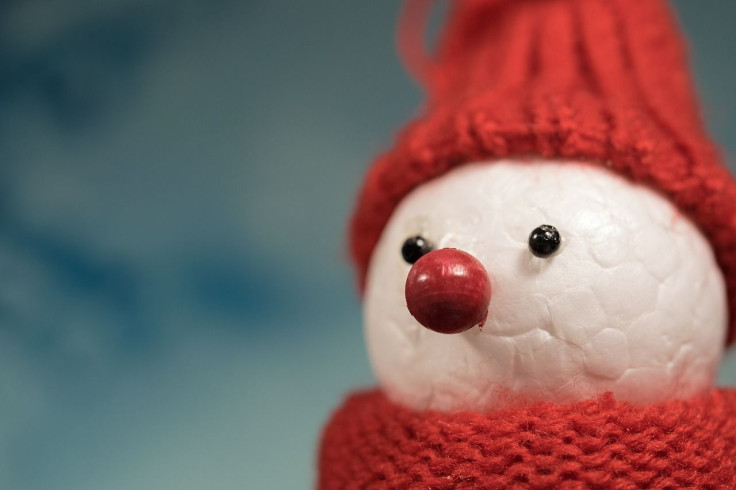The Evolutionary Reason It's Harder To Lose Weight In The Winter

It's difficult for many people to resist the lure of foods rich in sugar and fat come wintertime, especially when the holidays roll around and you're surrounded by huge pans of creamy macaroni and cheese. But new research published in the Proceedings of the Royal Society B suggests these urges to overeat go beyond festive family gatherings.
It's All Subconscious
Led by researchers at the University of Exeter, the study suggests humans evolved to have a subconscious urge to overeat, with limited ability to avoid becoming obese as soon as the temperature drops. "You would expect evolution to have given us the ability to realize when we have eaten enough, but instead we show little control when faced with artificial food," lead study author Dr. Andrew Higginson said in a statement. "Because modern food today has so much sugar and flavor the urge humans have to eat it is greater than any weak evolutionary mechanism which would tell us not to."
A quick glance at the timeline of human evolution reveals being overweight is revered in terms of survival, as opposed to the dangers of being underweight. The sudden urge to eat more food in the winter stems from the fact "food in the natural world is scarce," researchers said.
To learn more, researchers used a computer model to examine how much fat an animal stored was reflective of food availability and risk of being killed by a predator when foraging. The model assumes that natural selection gives animals, including humans, a perfect strategy to maintain the healthiest weight.
They found that little harm is done when animals exceed optimal levels of food storage and store larger amounts for energy. In these cases, the "subconscious controls against becoming overweight would be weak and so easily overcome by the immediate rewards of tasty food," researchers said.
They continued: "The model also predicts animals should gain weight when food is harder to find. All animals, including humans, should show seasonal effects on the urge to gain weight. Storing fat is an insurance against the risk of failing to find food, which for pre-industrial humans was most likely in winter. This suggests that New Year's Day is the worst possible time to start a new diet."
Trying To Lose Weight in the Wrong Season
People tend to eat less food during warm weather because of "a biochemical link between appetite and temperature regulation would help to assure a more stable body temperature," The New York Times reported. Eating produces more heat in the body, so eating a whole bowl of macaroni and cheese on a 95-degree day makes scalding hot weather even more unbearable.
Another study published in 2009 found people who exercise in a warmer environment ate less during a subsequent meal. Based on these studies, it seems that time between late march and November are more conducive to weight loss than the start of the year, when subconsciously, we seem to be more inclined to eat second and third helpings.
Source: McNamara J, Houston A. Fatness and fitness: Exposing the logic of evolutionary explanations for obesity. Proceedings of the Royal Society B. 2016.



























